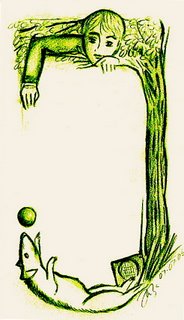 It’s pretty much a four-letter word. It is twice as long because it does double duty. It either suggests trouble or triviality, lack of sophistication or abject recklessness. It spells “no good” or bespeaks those who are up to no less than that. The word “juvenile,” I mean. And yet, most of our everyday diversions and the mass-marketing of such—the distinctions between which efforts are less clear now than ever—are being suited to those who supposedly suit the description. To be sure, it is the label “mature audience” or “adult content” that nowadays dangles from what is truly “juvenile” in popular culture: the brash, the unabashed, the verbal or visual provocation that substitutes for stimulating thought—anything, in short, that caters to our desire for instant self-gratification.
It’s pretty much a four-letter word. It is twice as long because it does double duty. It either suggests trouble or triviality, lack of sophistication or abject recklessness. It spells “no good” or bespeaks those who are up to no less than that. The word “juvenile,” I mean. And yet, most of our everyday diversions and the mass-marketing of such—the distinctions between which efforts are less clear now than ever—are being suited to those who supposedly suit the description. To be sure, it is the label “mature audience” or “adult content” that nowadays dangles from what is truly “juvenile” in popular culture: the brash, the unabashed, the verbal or visual provocation that substitutes for stimulating thought—anything, in short, that caters to our desire for instant self-gratification.
Much of what is still being remembered or perpetuated about the aureate days of wireless aurality in America (the 1930s to mid-1950s) is being thought of as “juvenile.” Indeed, it was widely regarded—and frequently denounced—as such even then. “What have you gentlemen done with my child?” protested Lee De Forest, the inventor whose Audion tube brought radio into being. “You have debased this child,” he railed against broadcasters back in those days after the end of the Second World War, when attacks against commercial radio were as common as the entertainment it presented.
“You have made him a laughingstock to intelligence, surely a stench in the nostrils of the gods of the ionosphere.” Instead of reaching maturity, radio had been “resolutely kept to the average intelligence of thirteen years,” as though those assuming charge of broadcasting believed that the “majority of listeners” had “only moron minds.” However sweeping and simplistic in his attack, De Forest realized at least that “juvenile” was nothing more—and nothing less—than a construct, an assumed average created for the sake of commerce and mass-marketing; it was not truly representative of American life in any of its stages.
It is no wonder that one of the words most often associated with “juvenile” is “delinquency.” After all, those who attempt to deprive us of our childhood because they believe it pays to have us yearn for adult life are closely allied with those who punish us when we find ourselves unable to buy or refuse to buy into the concept of buying whatever is being pushed our way. I, for one, am highly suspicious of those who wax nostalgic about the imaginary age of innocence—the years during which we are prey to commerce and corruption without yet sensing the state of our vulnerability, the days that are deemed precious by virtue of being irretrievable.
Today, serials like The Lone Ranger and episodic thrillers like The Shadow are being recalled either fondly or disdainfully, but by and large patronizingly. Future generations tend to trivialize the past by cherishing samples of bygone follies that are contrasted with or judged in light of present—and allegedly less primitive—diversions. The realization that we haven’t learned much from history or that we are altogether incapable of learning is perhaps too difficult to endure without the laughter of ridicule, unless such suspicions are being foiled by the benevolent smile of nostalgia.
Very little is gained by such approaches to popular culture, other than putting a performance in what is argued to be its proper place by putting it down as artistically inconsequential, or by elevating it to something incomparable and thereby rendering it historically nil. Such pretensions are of no assistance in our appreciation of history or art; nor do they make for insightful and engaging criticism. To call something “juvenile” means to render it either immune to criticism or unworthy of it.
Granted, I am getting too old to be playing the juvenile in the melodrama of life; but it is not out of a sense of envy or regret that I resent the term. Playing with what was once playing on the radio, I detest being reduced to a statistical average only because much of what was staged in the theater of the mind was conceived with such a construct in mind. I won’t turn a mythical thirteen whenever I take in an old radio program. And if I can’t manage to listen intelligently to such “juvenile” entertainment, I’d much rather be properly childish about it.
